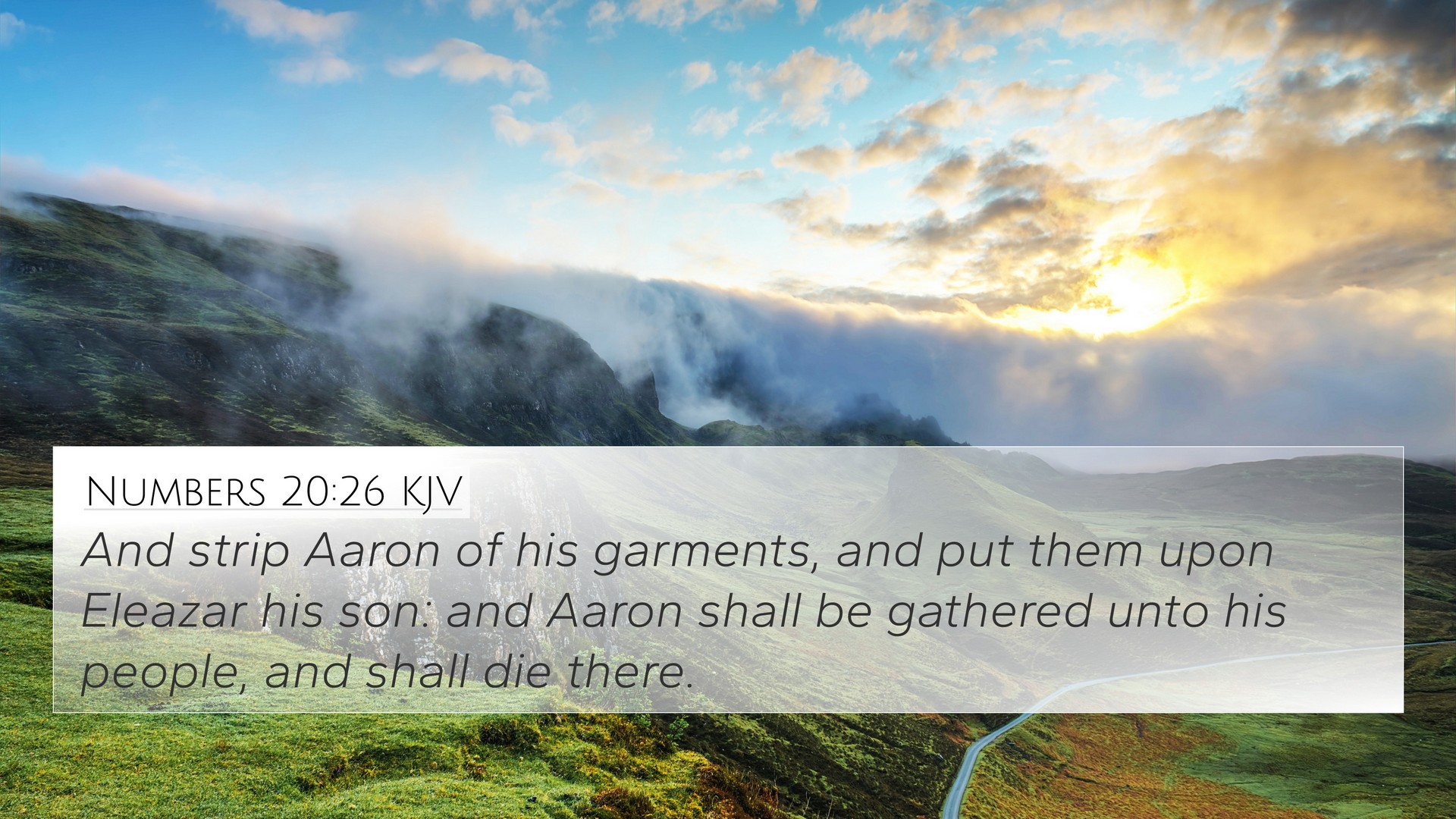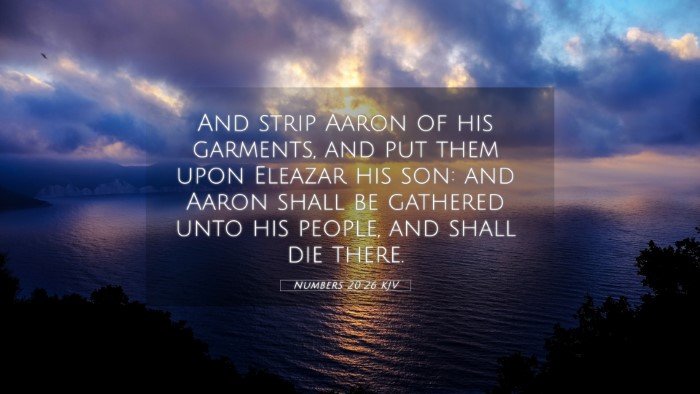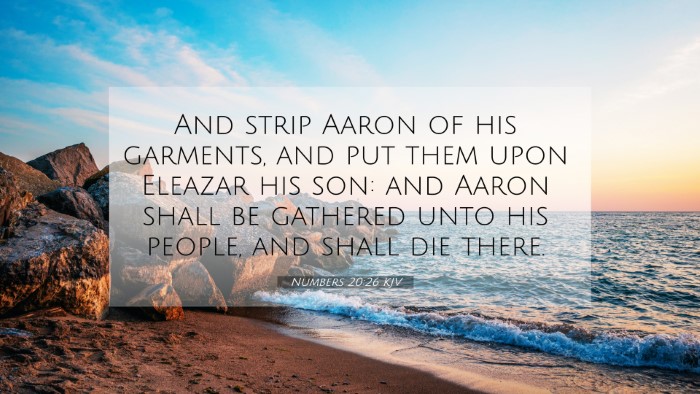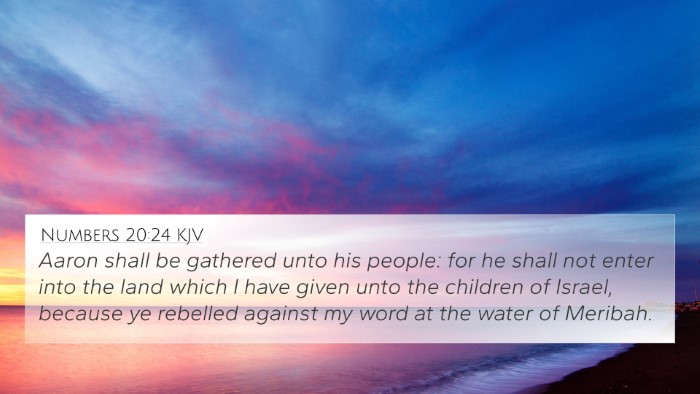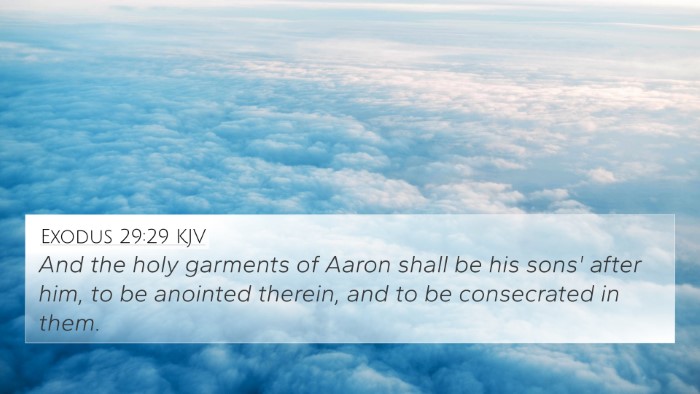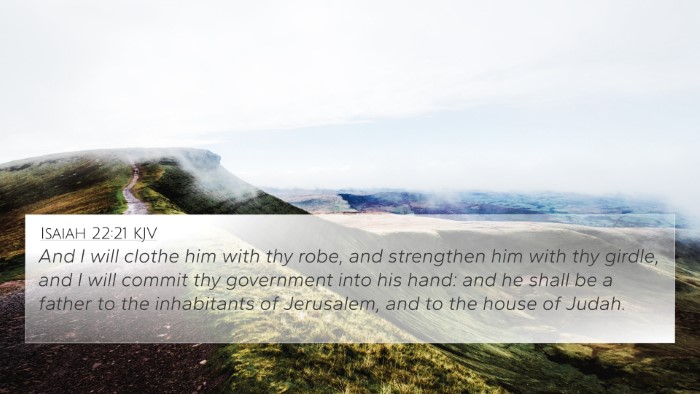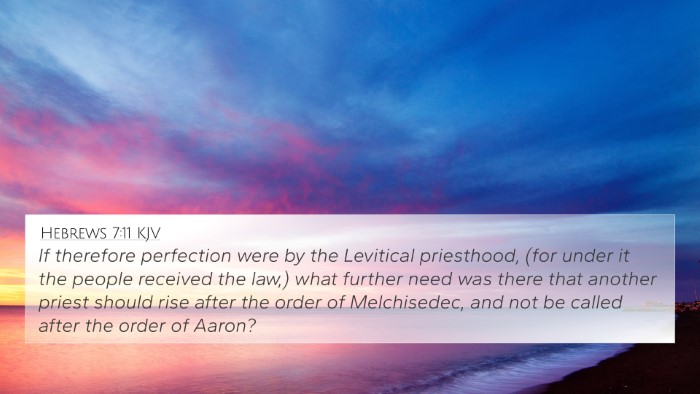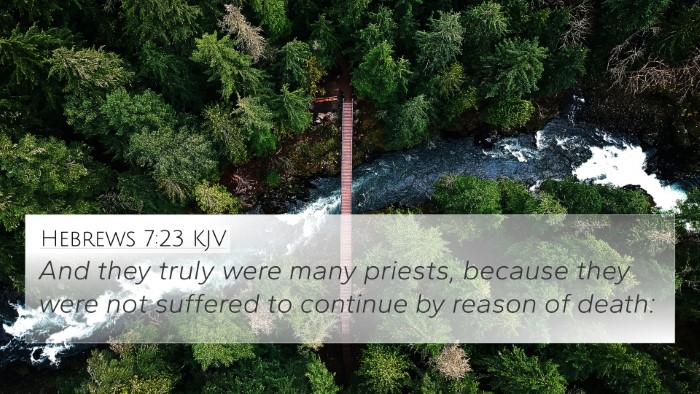Understanding Numbers 20:26
Verse: “And strip Aaron of his garments, and put them upon Eleazar his son: and Aaron shall be gathered unto his people, and shall die there.” - Numbers 20:26 (KJV)
Context and Overview
In this passage, God instructs Moses to remove the priestly garments from Aaron and to place them upon his son, Eleazar, indicating a transition of leadership and responsibility within the priestly order as Aaron approaches the end of his life. This verse represents a significant moment in the biblical narrative, marking not only the conclusion of Aaron's service but also the continuation of his legacy through his son.
Significance of the Passage
This verse serves as a poignant reminder of the holiness of the priesthood and the seriousness of God's covenant with His people. The act of stripping Aaron of his garments symbolizes the end of his role and the transfer of authority, emphasizing the importance of generational succession in God’s plan.
Thematic Bible Verse Connections
- Hebrews 7:23-24: Discusses the permanence of Christ's priesthood as opposed to the Levitical priesthood, highlighting the transition in leadership.
- Exodus 28:1: Where Aaron is originally appointed as high priest, establishing his role and the significance of priestly garments.
- Numbers 20:28: The subsequent verse describes the death of Aaron, completing the narrative arc surrounding his life and service.
- Leviticus 21:10: Highlights the requirement for the high priest to maintain his role until death, thus emphasizing Aaron's transition.
- 1 Chronicles 6:3-4: Outlines Aaron’s lineage, reaffirming the importance of his descendants in the priestly line.
- Matthew 27:51: Represents the tearing of the temple veil at Christ's death, indicating a new covenant and the end of the old priestly system.
- John 17:4: Jesus speaks of finishing the work He was sent to do, drawing parallels between His ministry and Aaron's completion of his duties.
Interpretations from Public Domain Commentaries
Matthew Henry
Matthew Henry emphasizes the gravity of stripping Aaron of his garments, seeing it as a solemn act reflecting the serious nature of God's covenant and the priestly office. He remarks that this serves not only as a transition to Eleazar but as a divine reminder of mortality, suggesting Aaron’s faithful service as well as the need for every believer to pass the baton to the next generation.
Albert Barnes
Albert Barnes speaks to the implications of this moment, underscoring the significance of Eleazar’s appointment. He connects this passage to the broader narrative of leadership in Israel and stresses that this act confirms that the priesthood was not merely a family affair but a divinely authorized position. Barnes also reflects on the overarching theme of obedience to God's directives, illustrating how each act of succession was orchestrated by the divine will.
Adam Clarke
Adam Clarke discusses the transfer of garments and authority as a symbolic act of divine selection and favor. He digs into the theology behind priestly garments, pointing out that they represent holiness, responsibility, and the call to serve God’s people. Clarke provides insights on how this moment prefigures the ultimate high priest, Jesus Christ, who would fulfill the law in a new covenant that surpasses the old.
Cross-Referencing Biblical Texts
Cross-referencing is a powerful tool for deeper understanding of Scripture. Numbers 20:26 presents an opportunity for a rich examination of the connections between the Old and New Testaments, especially concerning the themes of leadership, covenant, and divine calling.
Tools for Bible Cross-Referencing
Utilizing a Bible concordance or cross-reference guide can greatly enhance the study experience. Consider employing these tools for a comprehensive approach to understanding:
- Utilizing a Bible concordance to search for related themes.
- Employing a cross-reference Bible study method to compare parallel narratives.
- Engaging in Bible chain references to see how various scriptures relate to Numbers 20:26.
Conclusion
Numbers 20:26 serves as an important reminder of the continuity and richness of God’s plans. This verse invites us to consider not just the leadership of Aaron and Eleazar but the broader narrative of God’s faithfulness throughout the Scriptures. As we study this verse, we can reflect upon its significance in our own lives, remembering that God calls each of us to our own roles within His plan.
Further Reflection
As you meditate on Numbers 20:26, think about the ways in which God is calling you to lead, serve, or transition in your own life. How do the themes of leadership, obedience, and succession manifest in your personal journey? By examining these connections through cross-referencing and comparative analysis, we deepen our understanding of God's word and His intent for our lives.
